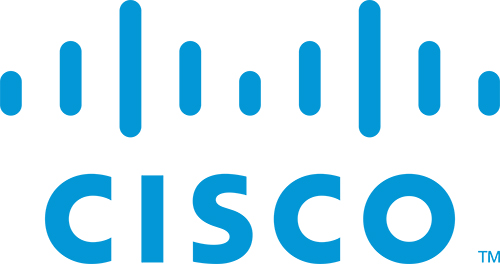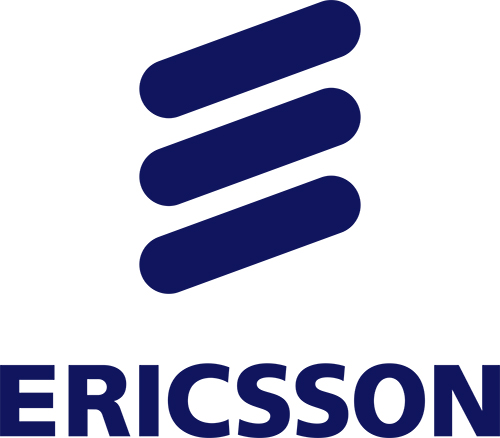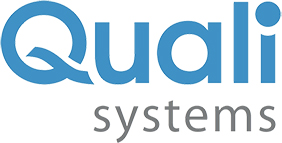ACCESS WITH PASS | 1 | 4 | 5 | 7 |
DATA CENTER SDN OVERLAY Session
PROTECTION & RESTORATION Session
OPTICAL Session
CONFERENCE DAY 3 | FRIDAY 20 MARCH 2015
| 08.00 | WELCOME, REGISTRATION AND COFFEE | |
 CHAIRMAN Matthew Bocci, Director, Technology and Standards ALCATEL-LUCENT |
| 09.00 | Network Virtualization: Keep it Simple Stupid | |
 Exposing the progress of BaGPipe, a lightweight integration of BGP-based VPNs in Openstack Neutron. Discussing what can be achieved with this solution architecture, such as L2 connectivity, seamless connectivity with IP VPNs, L3 inter-subnet connectivity and service-chaining. Exploring how the KISS principle and opensource implementations of existing techniques can be combined. Exposing the progress of BaGPipe, a lightweight integration of BGP-based VPNs in Openstack Neutron. Discussing what can be achieved with this solution architecture, such as L2 connectivity, seamless connectivity with IP VPNs, L3 inter-subnet connectivity and service-chaining. Exploring how the KISS principle and opensource implementations of existing techniques can be combined. Thomas Morin, Orange |
||
| 09.30 | Extending Automation, Abstraction & Simplicity beyond Datacenter Networks | |
 By reusing concepts and technologies such as policy controllers, network service directories, OpenFlow, Open vSwitch, VXLAN and BGP-EVPN discussing how operators can leverage datacenter and cloud networking functionality elsewhere in the network to reduce time to revenue, present a new operational model, and introduce flexible cloud networking. Discussing the trends and evolution of this concept as the cloud network moves beyond the datacenter. By reusing concepts and technologies such as policy controllers, network service directories, OpenFlow, Open vSwitch, VXLAN and BGP-EVPN discussing how operators can leverage datacenter and cloud networking functionality elsewhere in the network to reduce time to revenue, present a new operational model, and introduce flexible cloud networking. Discussing the trends and evolution of this concept as the cloud network moves beyond the datacenter. Alastair Johnson, Principal Solution Architect, Nuage Networks |
||
| 10.00 | Alibaba Case Study | |
 Cloud Alibaba Backgrounder Cloud Alibaba Backgrounder Cloud Alibaba Architecture Goals/Requirements SCiON and SUPA Overview Cloud Ali Implementation Lessons Learned (best practices, successes, fails, recommendations to peers) Tina Tsou, Technical Lead and Principal Engineer, Huawei |
||
| 10.30 | COFFEE BREAK | |
| 11.00 | Microsegmentation and how it relates to the Datacentre SDN Overlay | |
 Security should be part of the datacenter SDN DNA, and not afterthought to the overlay. We will review the concept of microsegmentation and explore why it is a critical aspect that needs to be inherent within the SDN overlay. Security should be part of the datacenter SDN DNA, and not afterthought to the overlay. We will review the concept of microsegmentation and explore why it is a critical aspect that needs to be inherent within the SDN overlay. Andy Kennedy, vmware |
PROTECTION & RESTORATION Session
| 11.30 | Topology Independent Local Protection for LDP-based LSPs | |
 Describing a mechanism to provide local protection for LDP-based transport LSPs that relies on bypass LSPs. The mechanism provides local protection both for link and for node failure. The mechanism does not place any restrictions on the network topology - in that sense it provides topology independent local protection. Describing a mechanism to provide local protection for LDP-based transport LSPs that relies on bypass LSPs. The mechanism provides local protection both for link and for node failure. The mechanism does not place any restrictions on the network topology - in that sense it provides topology independent local protection. Santosh Esale, Juniper Networks |
||
| 12.00 | SDN Controlled Service Chain Path Restoration | |
 Describing the framework of protection and restoration of Service Chain Instance Path when some instances on the path fail or need to be replaced. Analyzing various schemes for service instances restoration and demonstrating a mechanism to replace instances on the chain with minimum impact to the overall service. Describing the framework of protection and restoration of Service Chain Instance Path when some instances on the path fail or need to be replaced. Analyzing various schemes for service instances restoration and demonstrating a mechanism to replace instances on the chain with minimum impact to the overall service. Linda Dumbar, Distinguished Engineer, Huawei |
| 12.30 | LUNCH |
| 14.00 | OIF Global Transport SDN Prototype Demonstration | |
 Reviewing the recent demo conducted by members of the OIF and ONF. The demo tested prototype transport SDN technology in a real-world cloud-bursting application to illustrate a potential deployment use case, common interfaces required, needs for interoperability, and operational challenges. Reviewing the recent demo conducted by members of the OIF and ONF. The demo tested prototype transport SDN technology in a real-world cloud-bursting application to illustrate a potential deployment use case, common interfaces required, needs for interoperability, and operational challenges. Juergen Loehr, OIF Representative, Director Advanced Technology, Alcatel-Lucent IP Transport Advanced Technology |
||
| 14.30 | Scaling Inter-DC Cloud Networks with Packet-Optical Transport and Transport SDN | |
 Discussing emerging use cases for managing the underlay network for inter-data center networks, and how the trend towards convergence of packet/OTN/WDM technologies is beginning to shape new architectural thinking. The role of multi-layer SDN in facilitating the orchestration and coordination of resources in these use-case scenarios and in ensuring performance SLAs are properly satisfied while ensuring maximum network efficiency and utilization. Discussing emerging use cases for managing the underlay network for inter-data center networks, and how the trend towards convergence of packet/OTN/WDM technologies is beginning to shape new architectural thinking. The role of multi-layer SDN in facilitating the orchestration and coordination of resources in these use-case scenarios and in ensuring performance SLAs are properly satisfied while ensuring maximum network efficiency and utilization.Geoff Bennett, Director of Solutions & Technology, Infinera |
||
| 15.00 | Benefits and Challenges of Using a GMPLS UNI to enable IP and Optical Network Integration | |
 Looking at which end to end and segment protection mechanisms make sense across a GMPLS UNI. Quantifying the benefits of different combinations, including some novel protection mechanisms applicable to the UNI, and discussing control plane integration in a future where SDN techniques also play a role in IP/Optical integration. Looking at which end to end and segment protection mechanisms make sense across a GMPLS UNI. Quantifying the benefits of different combinations, including some novel protection mechanisms applicable to the UNI, and discussing control plane integration in a future where SDN techniques also play a role in IP/Optical integration. Matthew Bocci, Director, Technology and Standards, Alcatel-Lucent |
||
| 15.30 | Multi-layer Transport SDN: The Broader Context of SDN Deployments in Service Provider Networks | |
 Talking about the role of SDN in driving innovation, agility and efficiency in the transport network. Covering a few use cases where this SDN capability in the IP/Optical domain can be combined with some already well talked about applications of SDN (like Service Chaining , NFV Connectivity). Talking about the role of SDN in driving innovation, agility and efficiency in the transport network. Covering a few use cases where this SDN capability in the IP/Optical domain can be combined with some already well talked about applications of SDN (like Service Chaining , NFV Connectivity). Bala Thekkedath, Ericsson |
||
| 16.00 | Convergence as the Catalyst for Simplifying Inter Data Center Networks | |
 Covering the latest advances in packet and optical technologies applicable to the SDN infrastructure layer and how increased levels of convergence will allow metro network operators to greatly simplify metro networks that interconnect data centers. Covering the latest advances in packet and optical technologies applicable to the SDN infrastructure layer and how increased levels of convergence will allow metro network operators to greatly simplify metro networks that interconnect data centers. Brian Lavallée, Director, Product & Technology Business Solutions, Ciena |
||
| 16.30 | Split Control Responsibility in Multi-layer Networks: Who should do What? | |
 Who is responsible for restoring optical connections upon failure? An SDN controller or the distributed control plane of the network? And in the latter case: is the router responsible for initiating the process or is it the optical layer? Attempting to organize these questions according to some general guiding principles and assessing the pros and cons of each approach. Who is responsible for restoring optical connections upon failure? An SDN controller or the distributed control plane of the network? And in the latter case: is the router responsible for initiating the process or is it the optical layer? Attempting to organize these questions according to some general guiding principles and assessing the pros and cons of each approach. Authors:Mazen Khaddam, Cox Communications,Ori Gerstel, Sedona Systems Mazen Khaddam, Cox Communications |
| 17.00 | END OF CONFERENCE DAY THREE | |












